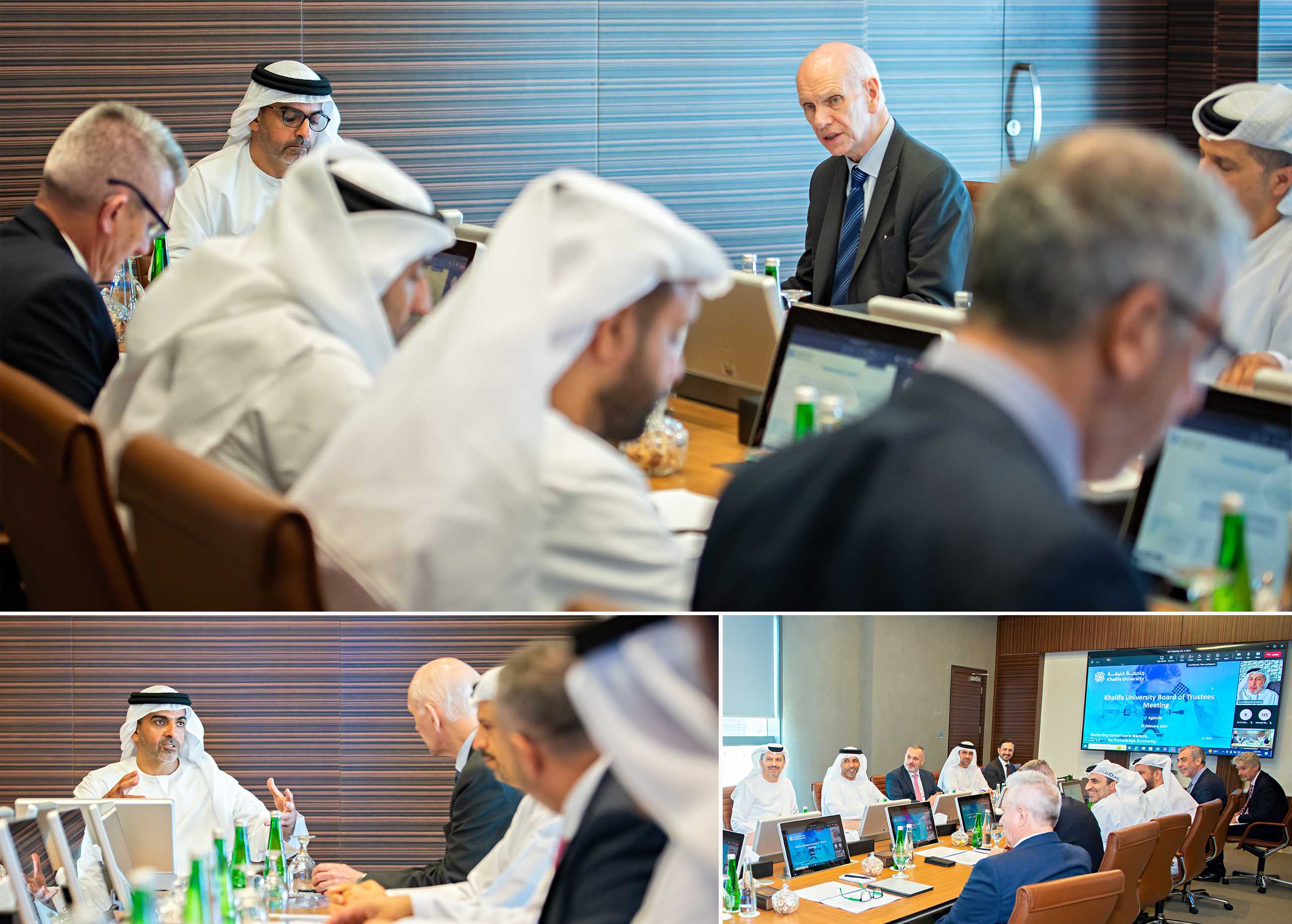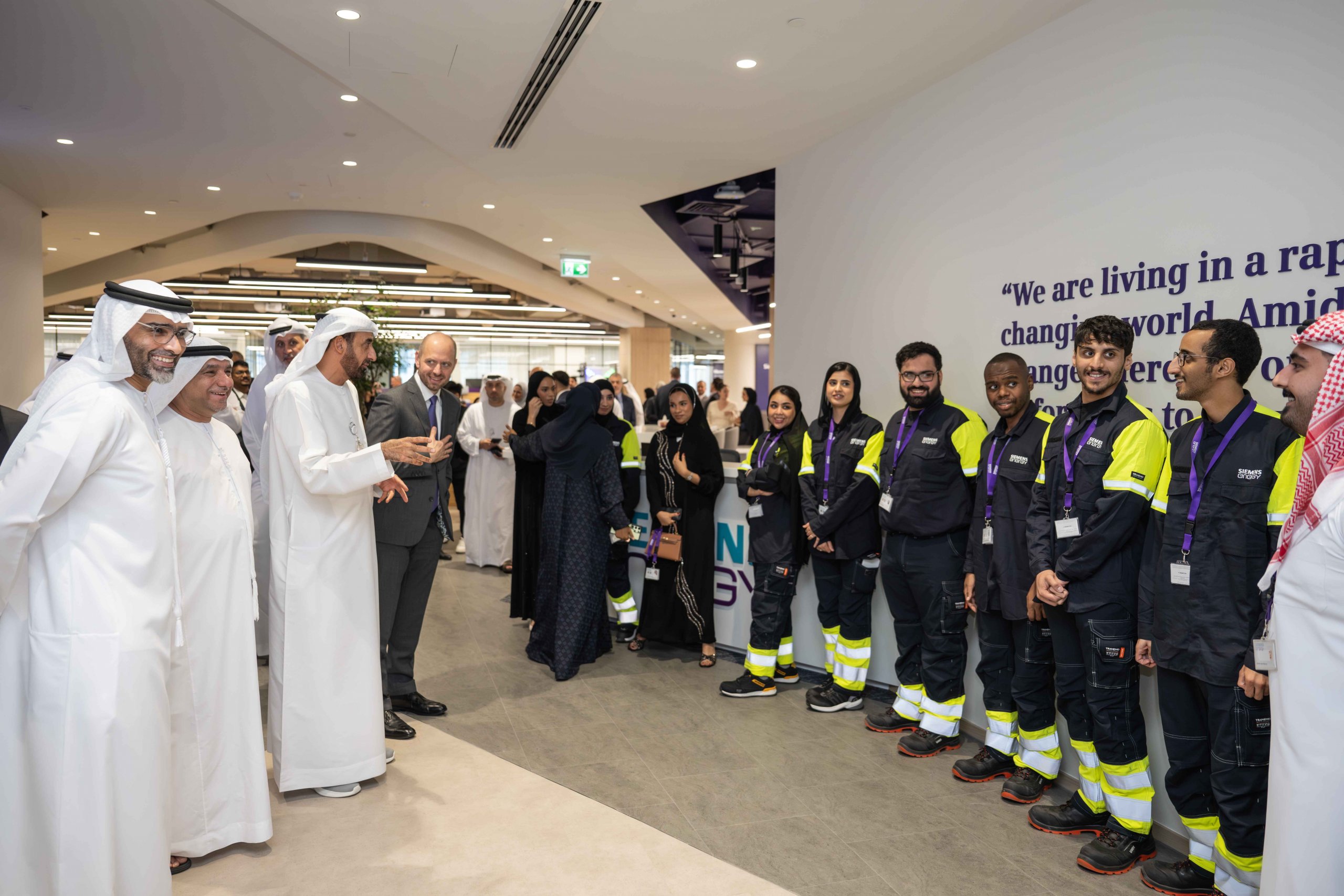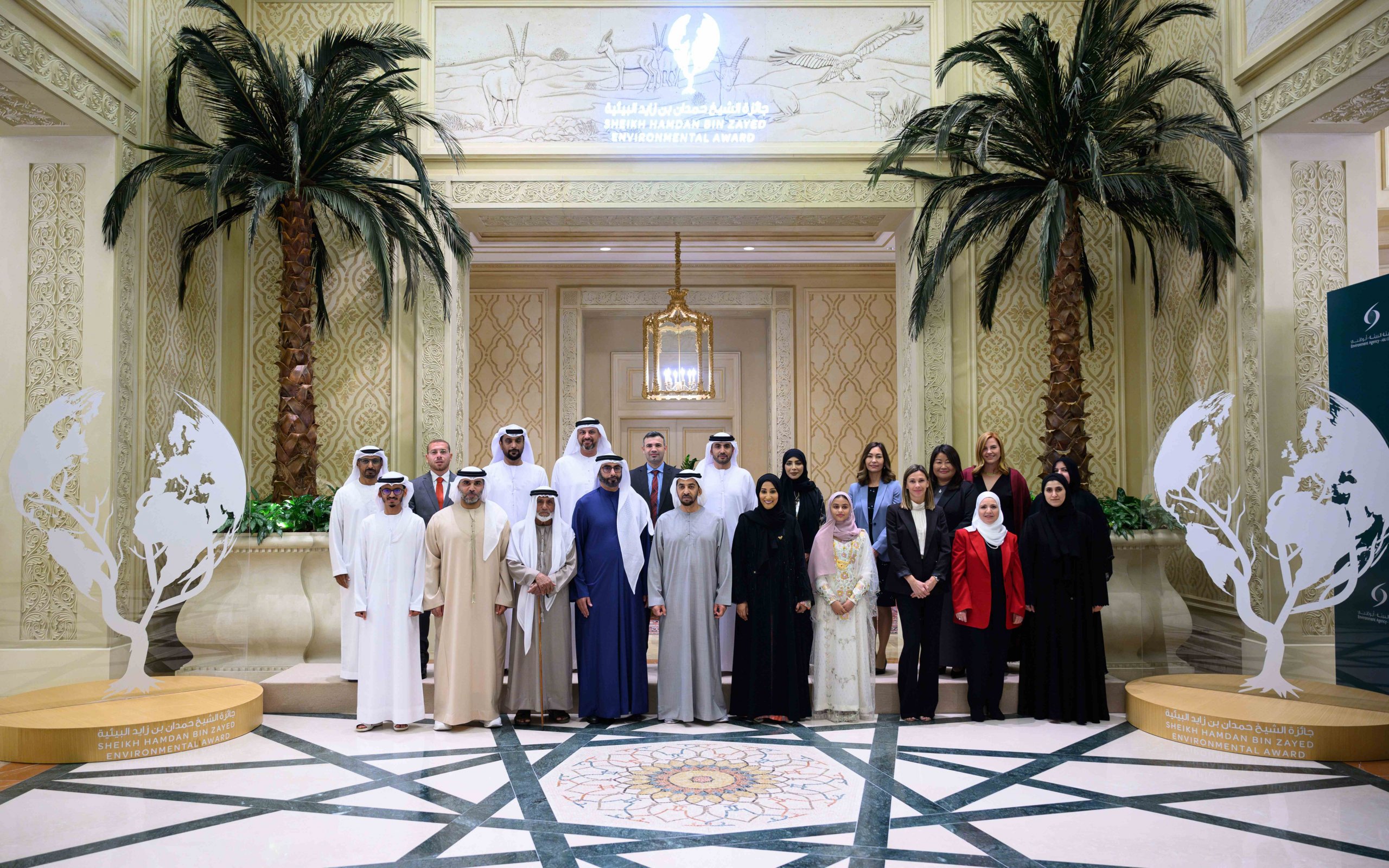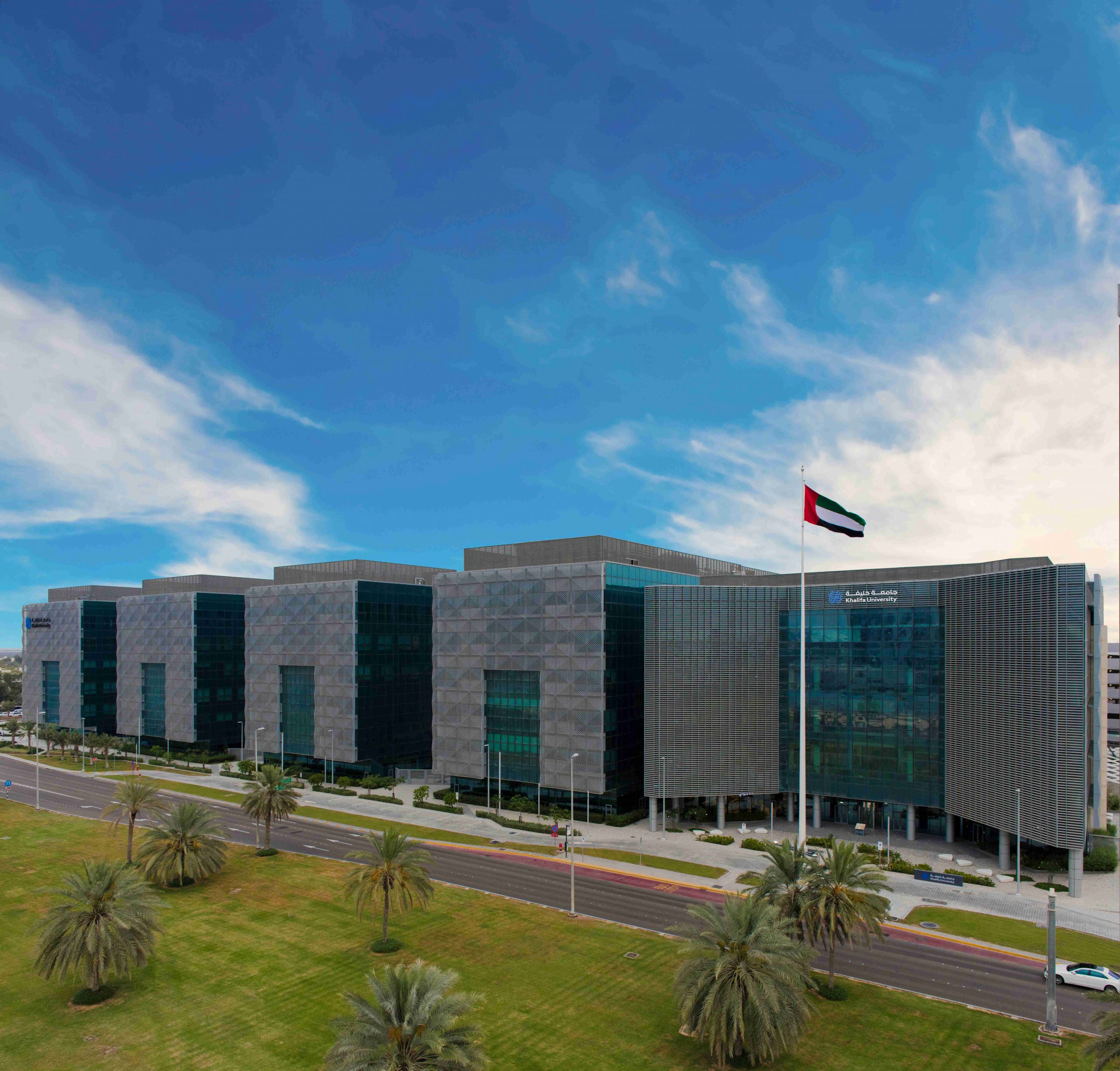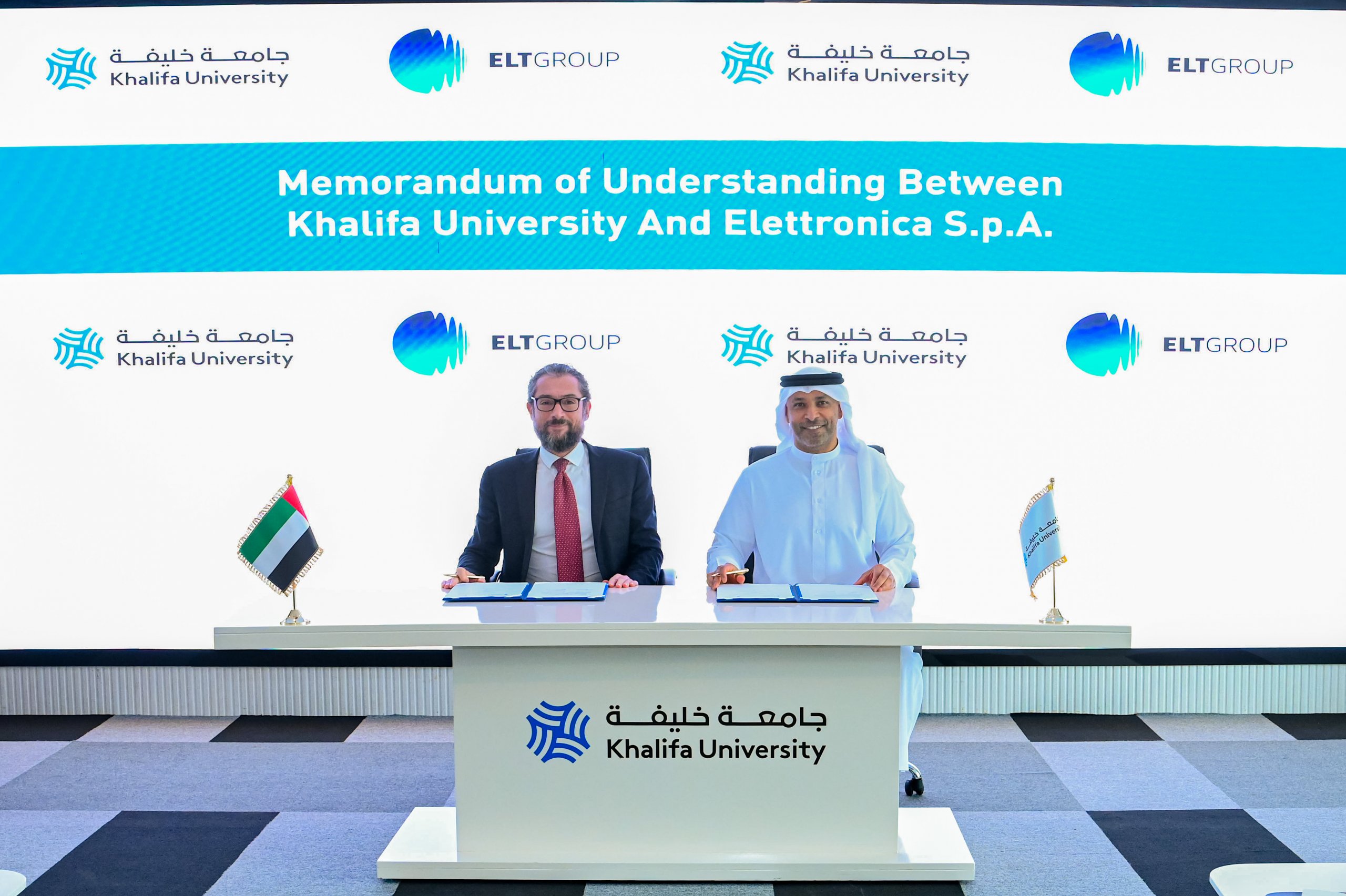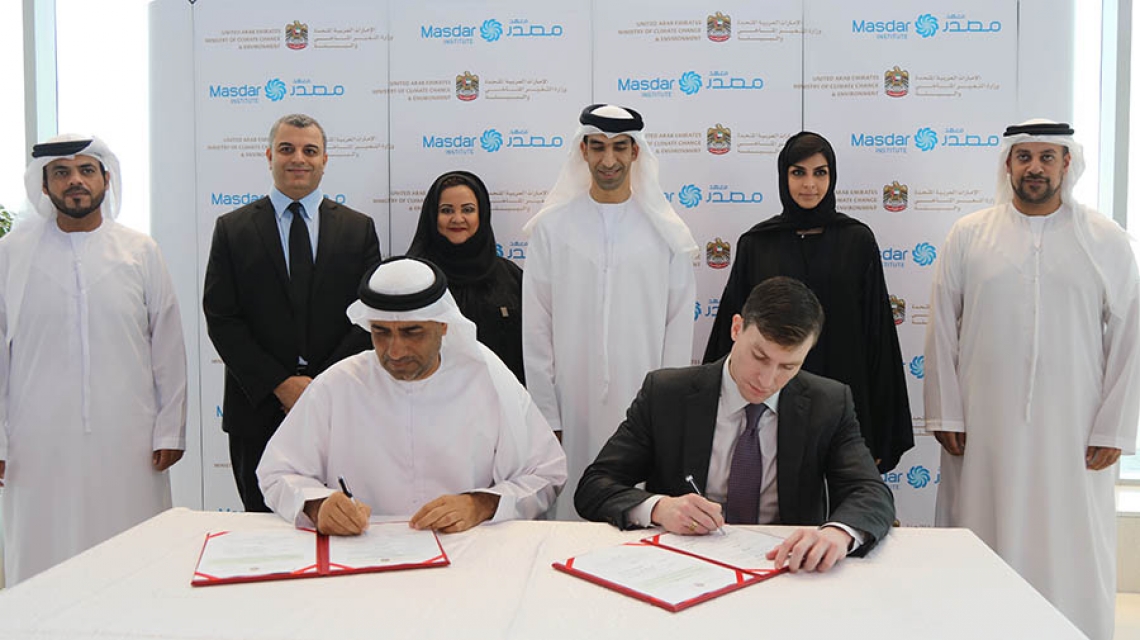
The UAE Ministry of Climate Change and Environment and the Masdar Institute of Science and Technology, an independent, research-driven graduate-level university focused on advanced energy, and sustainable technologies, signed a contract for the second phase of an air quality monitoring project in the UAE.
The three-year contract was signed at Sharjah Center for Astronomy & Space Sciences, following the success of Phase-1 of the project that involved Masdar Institute establishing the air quality monitoring system in the UAE. The signing ceremony also marked one of the key initiatives that Masdar Institute was part of during the UAE Innovation Week 2016 activities.
In the presence of His Excellency Dr. Thani Ahmed Al Zeyoudi, UAE Minister of Climate Change and Environment, the agreement was signed by Sultan Abdulla Sultan AlHebsi, Assistant Deputy Minister of the Regions, and Dr. Steve Griffiths, Vice-President for Research, Masdar Institute. Dr Lamya Fawwaz. Vice-President for Institutional Advancement and Public Affairs, Masdar Institute, Dr. Marouane Temimi, Associate Professor, Water and Environmental Engineering program, and Head of Coastal and Environmental Remote Sensing and Modeling Lab, Masdar Institute, and other officials were present on the occasion.
Phase-2 of the air quality monitoring by satellite project involves the utilization of ground-level and satellite data to measure PM2.5 levels in the air and the use of the air quality network to calculate air quality index and facilitate air quality control programs and initiatives. It will also use satellite imagery, numerical models, and ground observations to understand the variability of air quality across the UAE and identify sources and nature of trans-boundary pollutants.
Dr. Behjat Al Yousuf, Interim Provost, Masdar Institute. said: “We are privileged to partner with the UAE Ministry of Climate Change and Environment once again for the second phase of the air quality monitoring project. This partnership represents the strength of Masdar Institute, applying our innovative research to advance the goals of the UAE leadership. Through this agreement we are proud to collaborate with the Ministry to contribute toward developing a prompt and accurate method of monitoring air quality throughout the UAE, which will help us to recognize the environmental goals in the country’s 2021 vision.”
H.E. Dr. Al Zeyoudi said: “Air quality is one of the priorities in the UAE because of its health, economic and environmental impacts, where the National Agenda aims at raising the rate of air quality in the UAE from around 70% at present to 90% by 2021. This joint venture to remotely monitor air quality via satellites, underlines our belief that state of the art technology and innovative practices and tools are an important and essential part of the spectrum of solutions. We have to deal with the growing challenges that we face in our quest to achieve our national aspirations, which include improving air quality. We are relying heavily on employing the latest available technologies and developing innovative solutions that contribute to strengthening our capabilities in this area.”
Phase-1 had already demonstrated the capabilities of using remote sensing satellite techniques to monitor air quality in the UAE, which led to recommending PM2.5 standard for the country. Phase-2 builds upon the previous achievements of the team in weather modeling and remote sensing and expands the same lines of work to ultimately establish a comprehensive and robust system for the monitoring of air quality conditions in the UAE that is based on satellite imagery, numerical models, and in situ observations.
Dr. Marouane Temimi, Associate Professor, Water and Environmental Engineering program, and Head of Coastal and Environmental Remote Sensing and Modeling Lab, Masdar Institute, is leading a team of scientists and graduate students involved in phase 1 and phase 2 of the air quality project. Dr. Temimi also chaired a session at 2016 Air Quality and Noise Control GCC Conference held from 23-24 November 2016 in Abu Dhabi, and discussed a paper titled ‘Measuring and monitoring PM2.5 for continuous public health protection’. His talk covered the utilization of ground-level and satellite data to measure PM2.5 levels in the air and the use of the air quality network to calculate air quality index and facilitate air quality control programs and initiatives.
Dr. Temimi said: “We will use satellite imagery, numerical models, and ground observations to understand the variability of air quality in the UAE. The scope of Phase-2 goes beyond the monitoring goals to achieve a strong capacity building component within the MoCCE air quality department through regular training sessions. The thorough scope of the project also justifies the necessity to establish a long-term project to ensure achieving its interrelated parts.”
The project will provide MoCCE with the necessary tools to continuously assess air quality variability across the country. The aerosol characterization effort will help distinguish between manmade and natural emissions. Satellite imagery will ensure the daily and continuous monitoring of air quality across the country and identify sources and nature of trans-boundary pollutants.
Clarence Michael
News Writer
24 November 2016


